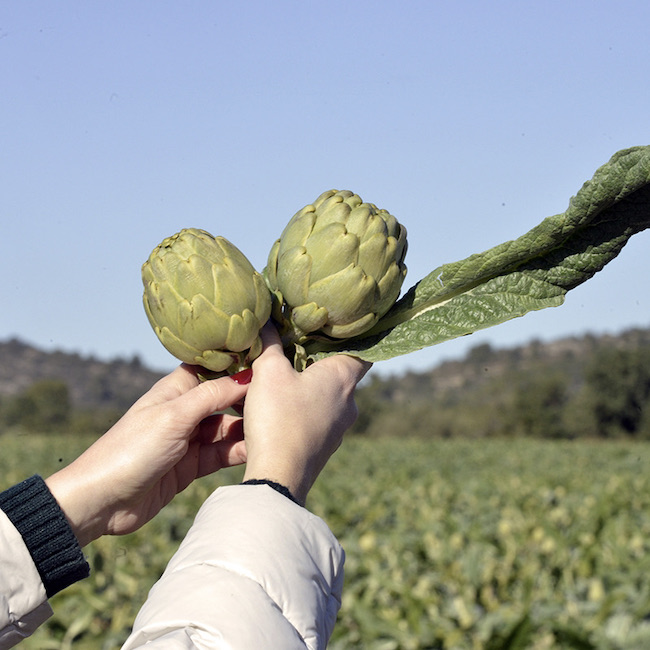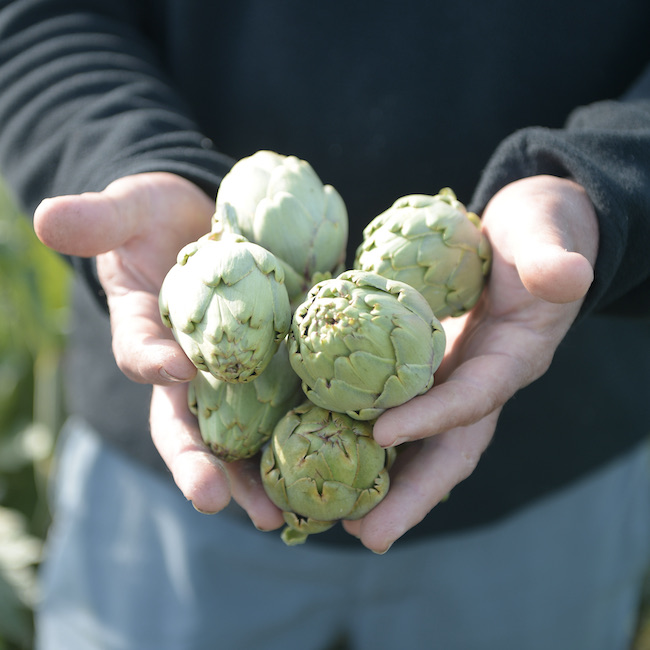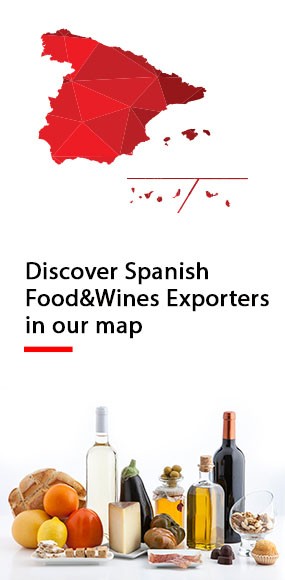.png.transform/rendition-xs/image_image%20(1).png)
Artichoke: the Most Gastronomic Flower
Spain is a leader when it comes to a vegetable that's recognized by the Benicarló Artichoke PDO (Castellón) and the Tudela Artichoke PGI (Navarre)
Among winter vegetables, few have more character than the artichoke. Its unique flavors make it very special: when we taste it, we can notice bitter, mineral, and grassy notes and even hints of soil and nuts. Due to this profile, it's considered a vegetable that's very complicated to pair with wine, although sherries are always there to prove that nothing is impossible.
The artichoke is a globe-shaped flower that grows on a plant with the same name. It's comprised of a green or purple base and the flowers are surrounded by protective leaves on top. Spain is the second-largest producer in the world (220,000 tons per year, according to the Spanish Artichoke Consortium) and the largest exporter according to data from the FAO (10,000 tons per year). The main export countries are France, Italy, the Netherlands, Germany, Belgium, and the United Kingdom.

In Benicarló artichokes, water purity is key
The artichoke has two protected designations in Spain. There's the Alcachofa de Benicarló PDO (Castellón), located in the Levante region, and the Alcachofa de Tudela PGI (Navarre), in the north of Spain. In both areas, there are companies that sell artichokes fresh or in jars, ready to eat with minimal preparation, which makes it easier for consumers around the world to access this delicacy.
Guillermo Edo, secretary of the Alcahofa de Benicarló PDO Regulatory Council and general manager of the company Benihort, explains that it's "the well water, which is extremely pure," that allows artichokes from Benicarló to be so high quality. "The sea breeze in our area keep the plants from freezing in the winter, which is very positive."
In this part of Castellón province, bathed by the Mediterranean Sea, the artichoke is "slightly flattened, as if it were a world globe." As they don't grow under very extreme weather conditions, the flower "grows on the inside and they have more flesh, which means there's more of them to enjoy." As a result, the Benicarló artichoke heart, which is the best part, is larger. One of the most common ways to prepare it in the area is "grilled, burning the outer leaves to expose a tender, delicious heart."
At Benihort, they prepare Benicarló artichokes in different ways. One of them is in a jar with oil. They can simply be removed from the jar and eaten with some Serrano ham from Jamón de Teruel PDO. Another version is with truffle. "They especially like it this way in France: it's a market that highly values products with truffle," says Edo. They're also sold as a mousse, which can be spread on toast.

Tudela ‘hearts’: freshness and quality
Known as "White Tudela", the artichoke grown in this Navarre town also has its own characteristics and is recognized by a protected geographical indication. "It has a rounded shape and the end has a kind of hole that's not completely closed," says Lidia Antón, from the family-run business Conservas Pedro Luis.
According to Antón, "What makes the Tudela artichoke different when it comes to preserving it is that it's jarred in its own pH without acidifying, like other foods do. This preserves and respects the original flavor." In this case, there's a selection process to find those with intermediate quality. They use only those hearts obtained through an entirely manual process. "We scald them, remove the bottom part, and peel them one by one until only the heart remains," says Antón. Afterwards, they package them with a preservative including water, salt, antioxidant, and a little ascorbic acid.
One important aspect is the proximity to the area where the artichokes are harvested. "Preparing them quickly is key to preserving the quality of the artichoke. In our case, they're often harvested in the morning and processed on the same day," she says, adding that it's a costly process, "both for the farmer and for the canner," although the quality of the end result is worth it. The artichokes they sell are ready to be used in all kinds of dishes, from rice to pasta.
They export to European countries such as the United Kingdom and France, although they have also brought the Tudela artichoke to destinations such as the United States and Australia. Additionally, they have a line of organic artichokes for "the German market, where there is demand for products with this type of certification."

